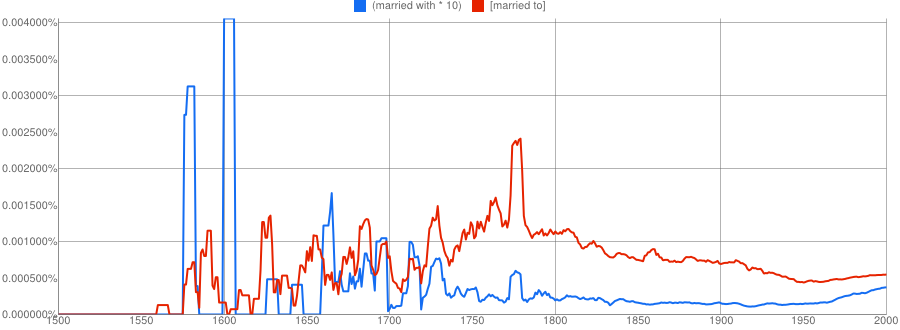Is it right to use the preposition "with" instead of "to" after the word "marry or married" under any given circumstances if we change the position of gender being mentioned?
For example:
"She is married to John"
Can we also say:
"John married with her" OR "John is married with her"
I highlighted this mistake in the notes of an educationist which he gave to his students. I raised this point with him that "to" is the only preposition which is used after the word "married". However, he argued that use of preposition depended on the position of gender being mentioned, thus the change in the position of gender also changes the preposition and it is right to use the preposition "with" after the verb "marry".
Can anyone explain?

